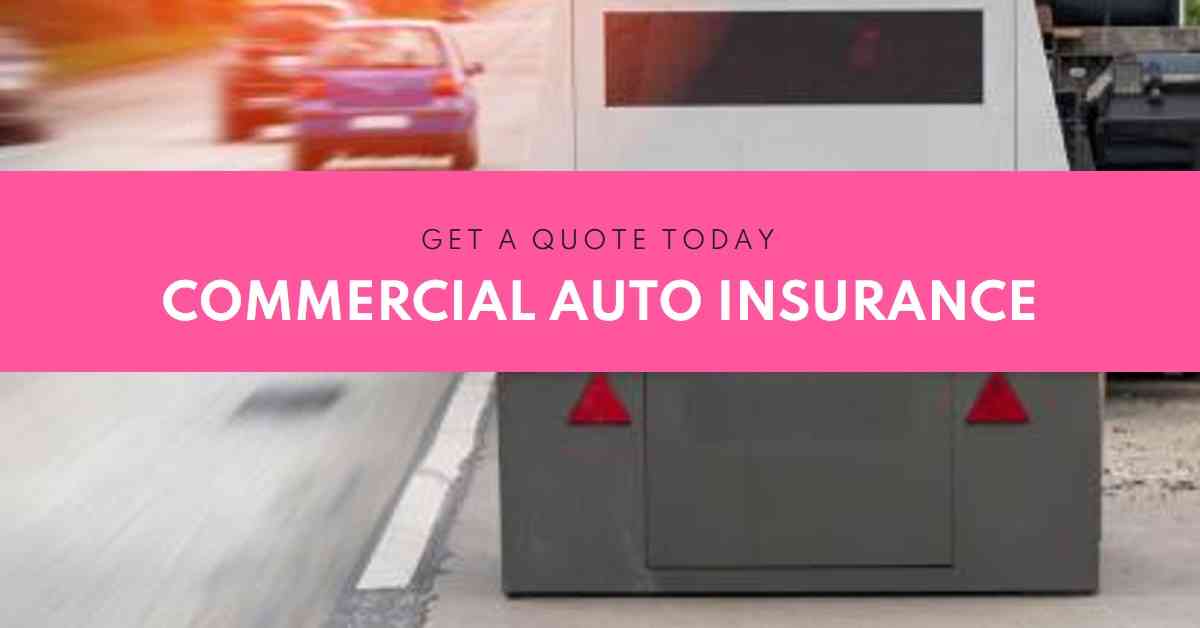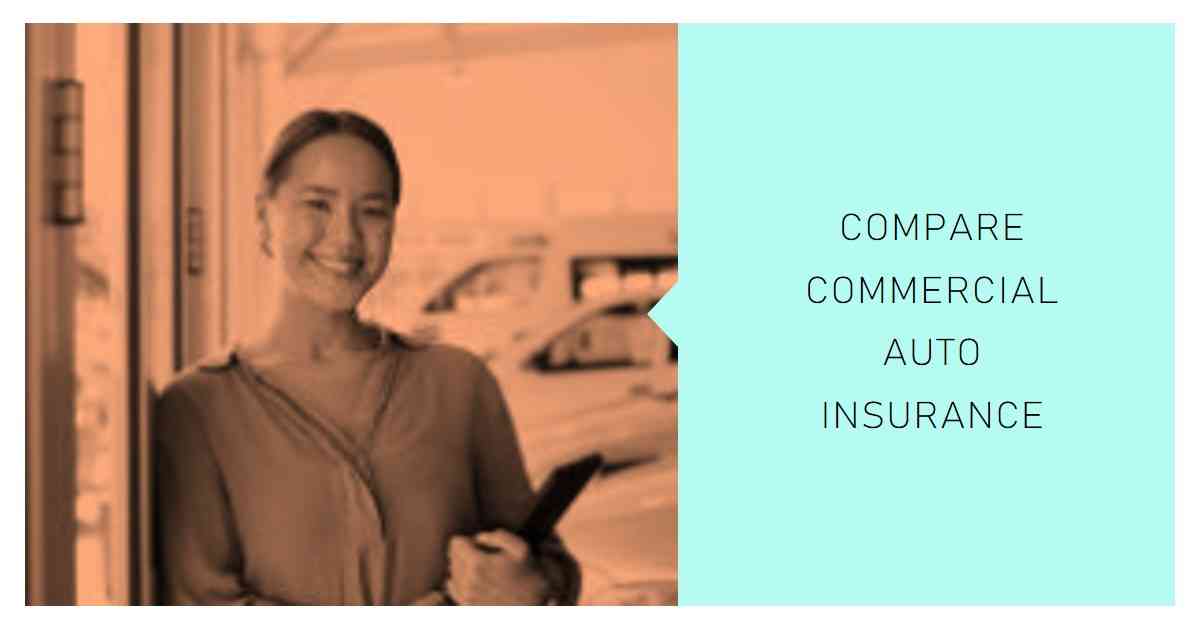
When it comes to running a small business, having the right protection is crucial, especially if your operations involve vehicles. Commercial auto insurance can safeguard your business from financial risks associated with accidents or damages involving vehicles used for business purposes. In this article, we’ll dive into everything you need to know about commercial auto insurance, including its coverage, costs, and how to find the best quotes.
What is Commercial Auto Insurance and Why Do You Need It?
Understanding Commercial Auto Insurance Coverage
Commercial auto insurance is designed to cover vehicles that are used for business purposes. This form of insurance provides essential protection against damages, theft, and liability related to commercial vehicles. If your small business uses vehicles for deliveries, transporting goods, or any other business-related tasks, you’ll need commercial auto insurance to protect your business assets. The coverage ensures that you’re not left financially vulnerable in the event of an accident or damage to your vehicle, making it a critical component for any business owner operating a fleet.
Understanding the nuances of commercial auto coverage can give you peace of mind and help you make informed decisions. It encompasses various aspects, including liability coverage, which protects against claims made by third parties. Additionally, it can include coverage for physical damage, personal injury, and even hired and non-owned auto insurance if employees use their personal vehicles for business tasks. In essence, this insurance serves to shield your business from the unpredictable nature of road incidents.
How Commercial Auto Insurance Differs from Personal Auto Insurance
While commercial auto insurance and personal auto insurance may seem similar, they cater to very different needs. Personal auto insurance is designed for individual use, covering vehicles that are primarily driven for personal errands. In contrast, commercial auto insurance addresses the unique risks associated with business use, such as transporting goods or clients. This distinction is vital because personal auto insurance policies often exclude coverage for accidents occurring while the vehicle is being used for business, leaving business owners exposed to significant financial risk.
Moreover, commercial auto insurance policies typically offer higher liability limits and broader coverage options to meet the demands of business activities. If an employee were to cause an accident while driving a vehicle for business purposes, personal car insurance would likely not cover the incident, leading to substantial out-of-pocket expenses. Therefore, understanding these differences can help you determine whether you need commercial auto insurance or if personal auto insurance suffices for your situation.
Who Needs Commercial Auto Insurance?
Any small business that uses vehicles for commercial purposes should consider obtaining commercial auto insurance. This includes companies that rely on delivery vans, trucks, or even cars to conduct their operations. If your business employs drivers who use their personal vehicles for work, you may also need to get a commercial auto policy to cover these situations. Essentially, if your vehicles are utilized in the course of business, commercial auto insurance is not just a good idea—it’s a necessity to protect your business and its assets.
Moreover, industries such as construction, landscaping, and transportation often have a higher demand for commercial vehicle insurance. These businesses frequently involve transportation of materials, equipment, or clients, which increases the risk of accidents related to commercial car insurance. Even if you operate a small service business, such as a cleaning company or consulting service, and use a vehicle to get to job sites, you’ll still need commercial coverage. It’s all about ensuring that your business is adequately protected against the unique risks associated with vehicle use in a commercial context.
What Does Commercial Auto Insurance Cover?
Key Commercial Auto Insurance Coverage Types
When exploring business auto insurance, it’s essential to understand the various coverage types available to you. The primary types of coverage include liability policy, which protects you from claims arising from injuries or damages caused by your business vehicles. Additionally, a commercial car insurance policy can safeguard your vehicles against damages due to collisions, vandalism, or natural disasters. Other important aspects of commercial auto insurance coverage may include uninsured motorist coverage, which kicks in if you’re involved in an accident with an uninsured driver, and personal injury protection, which covers medical expenses for you and your passengers.
Furthermore, some policies offer specialized coverage options tailored to specific industries and business needs. For example, if your business involves transporting goods, you might want to consider cargo insurance, which protects the items you’re transporting. Understanding these coverage types can help you craft a policy that aligns perfectly with your business operations, ensuring you’re not left exposed in the event of an accident or loss.
Liability Coverage in Commercial Auto Insurance
Liability coverage is often considered the cornerstone of any commercial auto insurance policy. It protects your business from claims made by third parties for bodily injury or property damage caused by your vehicles. In today’s litigious environment, having sufficient liability insurance is vital for protecting your business from potentially devastating financial repercussions. If you’re found at fault in an accident, liability coverage can help pay for medical expenses, legal fees, and any settlements owed to the injured parties, allowing you to focus on running your business without the fear of financial ruin.
Moreover, commercial auto liability coverage is typically divided into two components: bodily injury liability and property damage liability. Bodily injury liability covers medical expenses for injuries sustained by others in an accident, while property damage liability covers the cost of damage to someone else’s property. It’s crucial to assess how much liability coverage is appropriate for your business, as the right amount can vary based on your business activities, the types of vehicles used, and the risks associated with your industry. By ensuring you have adequate liability coverage, you’re investing in the long-term stability of your business.
What Vehicles Are Covered Under Commercial Auto Insurance?
Commercial auto insurance can cover a variety of vehicles utilized for business purposes, not just traditional trucks or vans. Whether you’re using a pickup truck, a delivery van, or even a car for client meetings, these vehicles can be included under your commercial auto policy. Additionally, some policies extend coverage to specialized vehicles, like tow trucks or refrigerated vehicles used for transporting goods. It’s important to specify all vehicles that will be covered in your policy to avoid any gaps in coverage that could leave your business vulnerable.
Moreover, if employees use their personal vehicles for business-related tasks, it’s essential to consider hired and non-owned auto insurance. This type of coverage protects your business in case an employee causes an accident while driving their personal vehicle for work purposes. By ensuring that all vehicles used for your business are appropriately covered, you can protect your business from potential liabilities and damages, giving you peace of mind as you focus on your operations.
How Much Does Commercial Auto Insurance Cost?
Factors Affecting Commercial Auto Insurance Rates
The cost of commercial auto insurance can vary significantly based on several factors. For starters, the type of vehicles you insure plays a crucial role in determining your insurance rates. Larger vehicles or those with a higher risk of theft may come with higher premiums under a commercial car insurance policy. Additionally, the driving history of your employees and the claims history of your business can also impact rates. If you have a history of accidents or claims, you might face higher insurance costs as insurers may view your business as a higher risk.
Furthermore, the coverage limits and deductibles you choose will also affect your overall commercial auto insurance cost. Higher coverage limits typically result in higher premiums, but they provide more protection in case of a significant loss. On the other hand, opting for a higher deductible can lower your premium but may lead to out-of-pocket expenses in the event of a claim. By understanding these factors, you can better estimate the insurance costs associated with your commercial vehicles and make informed decisions about your coverage options.
Comparing Quotes for Commercial Auto Insurance
Comparing quotes for commercial car insurance is a smart move to ensure you find the best rates and coverage for your business. Start by gathering quotes from multiple insurance companies, as rates can vary widely between providers. Take the time to assess not just the cost but also the coverage options and limits each policy offers. Some insurers may provide additional benefits, such as roadside assistance or rental reimbursement, which can further influence your decision. It’s essential to look beyond the price tag and find a policy that offers the right balance of coverage and affordability.
Additionally, when comparing quotes for business auto insurance, consider the reputation and customer service of the insurance companies you’re evaluating. Reading customer reviews and ratings can give you insight into how well the company handles claims and customer inquiries. A lower premium might not be worth it if the insurer has a poor track record of customer service. By taking a comprehensive approach to comparing quotes, you can ensure that you’re making the best choice for your business’s insurance needs.
Finding Affordable Commercial Auto Insurance for Small Businesses
Finding affordable commercial auto insurance can feel overwhelming, but it’s critical for small business owners who want to protect their assets without breaking the bank. One effective strategy is to shop around and compare different quotes from various insurance providers. This allows you to see the range of options available and select a policy that fits your budget. Additionally, consider bundling your commercial auto insurance with other business insurance policies, such as general liability insurance, to potentially unlock discounts and save money.
Another way to find affordable coverage is to assess your business needs and tailor your coverage accordingly. For example, if your business has a low risk of accidents or claims, you might opt for higher deductibles to lower your premium. Additionally, maintaining a clean driving record for your employees can help you qualify for lower rates. By being proactive in your search and understanding your options, you can secure affordable commercial auto insurance that meets your small business’s specific needs.
How to Compare Commercial Auto Insurance Quotes?
What to Look for When Comparing Quotes
When comparing commercial auto insurance quotes, there are several key factors to consider to ensure you’re making the best choice for your business car insurance. Start by examining the coverage options included in each quote. Look for essential coverages such as liability, physical damage, and any additional options like roadside assistance or rental car coverage. It’s vital to ensure that the policy aligns with your business needs and adequately protects your assets.
Next, pay attention to the policy limits and deductibles associated with each car insurance policy quote. High policy limits provide better protection, while higher deductibles can lower your premium but may lead to more out-of-pocket costs when filing a claim. It’s also important to review any exclusions or limitations in the policy, as understanding these details can prevent surprises down the line. By taking the time to thoroughly compare quotes, you can find a policy that strikes the right balance between cost and comprehensive coverage.
Understanding Commercial Auto Insurance Policies
Understanding the intricacies of commercial auto insurance policies is crucial for small business owners. Each policy can vary significantly in terms of coverage, limits, and exclusions, so it’s essential to read the fine print. Familiarize yourself with the terms used in the policies, such as “deductible,” “premium,” and “coverage limits,” to ensure you know what you’re signing up for. Additionally, consider consulting with an insurance agent who specializes in commercial auto insurance, as they can provide valuable insights and help you navigate the complexities of different policies.
Moreover, understanding your specific business needs will play a significant role in selecting the right policy. For instance, if your business involves transporting goods, you’ll want to prioritize coverage types that protect your cargo. Similarly, if your employees frequently use their personal vehicles for work, ensure the policy includes hired and non-owned auto insurance. By gaining a comprehensive understanding of commercial auto insurance policies, you can make informed decisions that protect your business and its assets.
Tips for Getting Customized Commercial Auto Insurance Quotes
Getting customized commercial auto insurance quotes tailored to your business needs is essential for optimal protection. Start by assessing your specific requirements, such as the number of vehicles you need to insure and the types of coverage that are most relevant to your operations. This preparation will help you provide accurate information to insurers, leading to more accurate quotes. Don’t hesitate to ask questions about different coverage options, deductibles, and limits to ensure you fully understand what each policy entails.
Additionally, consider leveraging technology to streamline the quoting process for commercial car insurance. Many online platforms allow you to input your business information and receive multiple quotes for business car insurance from different carriers quickly. This can save you time and help you compare various options easily. Finally, don’t forget to periodically review your commercial auto insurance needs, as your business may evolve over time, necessitating adjustments to your coverage. By taking these steps, you can secure customized quotes that effectively protect your business.
What Are the Requirements for Commercial Auto Insurance?
 Commercial Auto Insurance Requirements by State
Commercial Auto Insurance Requirements by State
Each state has its own regulations regarding commercial auto insurance requirements, making it essential for business owners to be informed about their specific state laws. Most states mandate a minimum level of liability coverage, which varies by state. It’s crucial to comply with these legal requirements to avoid penalties and ensure your business operates within the law. Additionally, some states may have additional requirements based on the type of business you operate or the vehicles you use.
Furthermore, understanding your state’s regulations can help you determine if your current coverage is adequate. It’s advisable to consult with an insurance professional who can provide insight into your state’s specific requirements and help you navigate the complexities of commercial auto insurance laws. By staying informed and compliant, you can protect your business from legal issues while ensuring that your vehicles are adequately covered.
Essential Documents Needed for Commercial Auto Insurance
When applying for commercial auto insurance, you’ll need to gather several essential documents to streamline the process. Typically, insurers will require information about your business, including your business name, address, and type of business structure. Additionally, you’ll need details about the vehicles you plan to insure, such as their make, model, year, and VIN numbers, to get a commercial auto insurance quote. Providing accurate information upfront can help you receive more accurate commercial auto insurance quotes and coverage options tailored to your business.
Moreover, you may also need to submit documentation related to your driving history, such as any past claims or accidents, when you’re looking for commercial auto insurance. This information allows insurers to assess the risk associated with insuring your vehicles and can influence your business auto insurance cost. By having all necessary documents organized and ready, you can expedite the process and secure the best possible coverage for your business.
Do You Need a Commercial Auto Policy for All Business Vehicles?
Not every business vehicle requires a commercial auto policy, but it’s crucial to evaluate your specific situation. If your vehicles are primarily used for business purposes, such as delivery or transporting equipment, you’ll need commercial auto insurance to protect your business interests. However, if you’re using personal vehicles for minimal business tasks, you might not need a separate commercial policy, although it’s always best to check with your insurer.
Furthermore, if employees use their personal vehicles for business purposes, you should consider whether you need to include hired and non-owned auto insurance in your policy to cover those situations. Ultimately, understanding how your vehicles are utilized is key to determining your insurance needs. By accurately assessing your business vehicle usage, you can ensure you have the right coverage in place to protect your business assets effectively.





 Commercial Auto Insurance Requirements by State
Commercial Auto Insurance Requirements by State